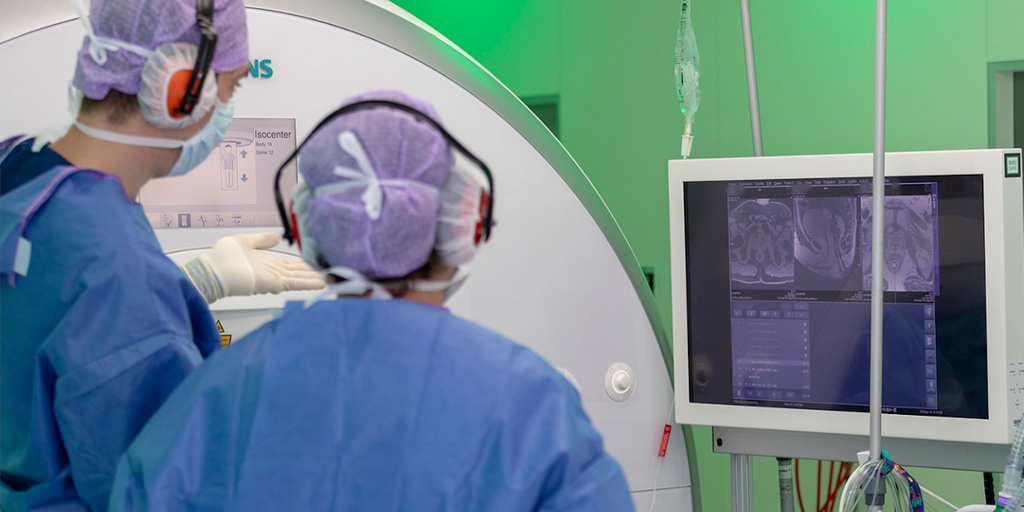
Background
MRI allows minimally invasive treatment of cancer and other diseases. MRI accurately reveals a tumor within an organ or at difficult to reach locations. Using real-time MRI visualization, special needles are inserted such that the tip is within the tumor. Several types of treatment exist. One such treatment is to heat the tumor tip. The tissue surrounding the tip is exposed to the treatment and tissue cells in that region are killed and subsequently broken down by the body. The size of the region depends on the duration of the treatment. This type of therapy has several advantages. MRI guided interventions prevent having to search for the tumor reducing disruption to anatomical structures surgically. The real-time feedback on the effect of the intervention ensures excellent coverage of the tumor region. The minimally invasive procedure allows faster recovery of the patient.
The accuracy of interventional MRI is unfortunately limited because during needle intervention, the body deforms and structures disappear from the imaging display. The MRI needs to be manually adjusted to acquire images in a new imaging plane that shows the structure in relation to the needle. This repeated MRI adjustment takes considerable time and leads to suboptimal needle placement.
The goal of this project is to develop Artificial Intelligence (AI) to improve MRI guided interventions by automatically tracking tumors and automatically steering MRI acquisitions. We have an MRI scanner that can be digitally steered. AI can be developed such that it can track an object from a series of MRI images. The developed AI output can be used to steer the MRI. With the improved visualization, interventions can become more accurate in less time.
Tasks
In this pilot project, the focus is on simulated interventional MRI. The tasks are as follows:
- Develop an MRI simulation module. Synthetic MRI image series should show moving tumor targets with an adjustable motion to simulate varying levels of difficulty.
- Develop an AI tracking module that predicts the tumor target location from a series of MRI images.
- Develop a demonstrator that compares conventional versus AI-driven interventional MRI
Requirements
- Students at the final year of a study in computer science, artificial intelligence, physics, or a related area.
- Basic level of knowledge and experience in Deep Learning in Healthcare
Information
- Project duration: 6-9 months
- Location: Radboud University Medical Center
- For more information, please contact Patrick Brand

